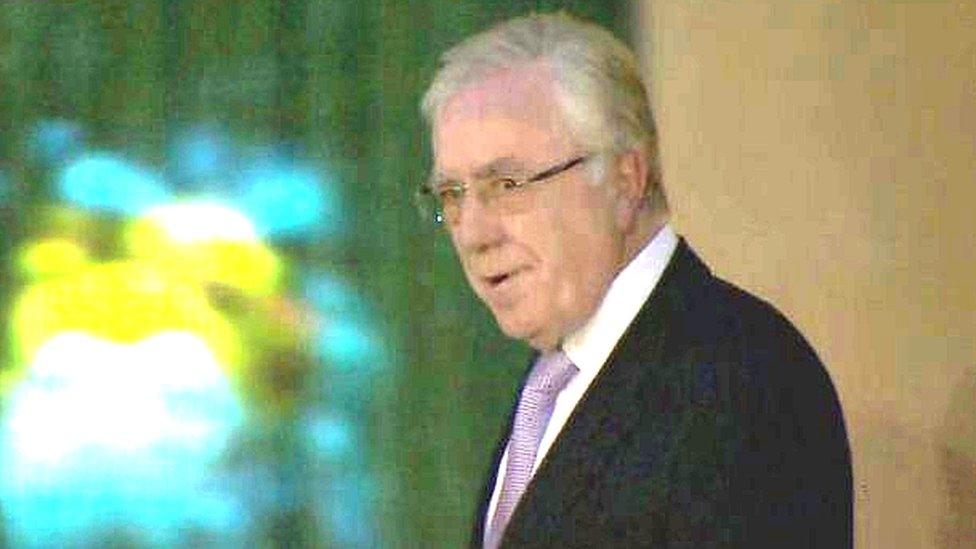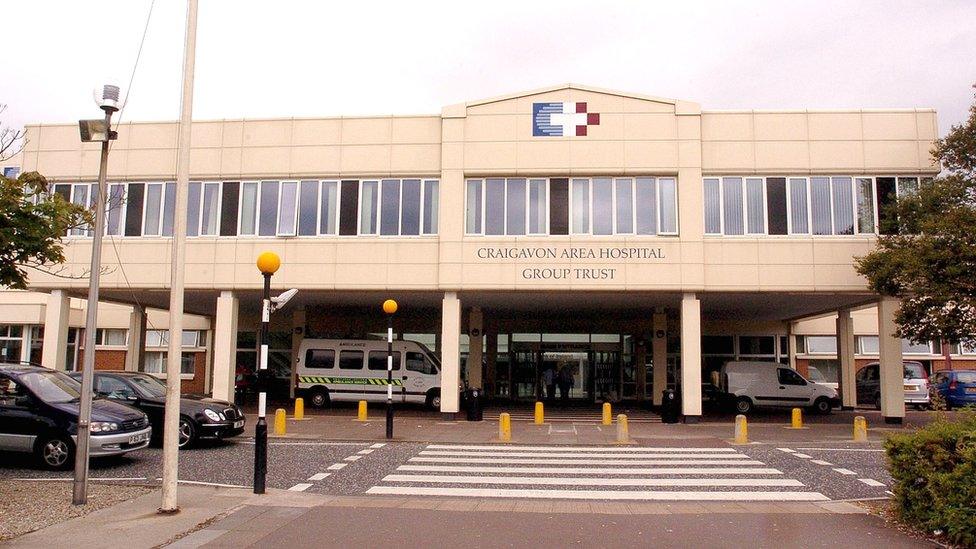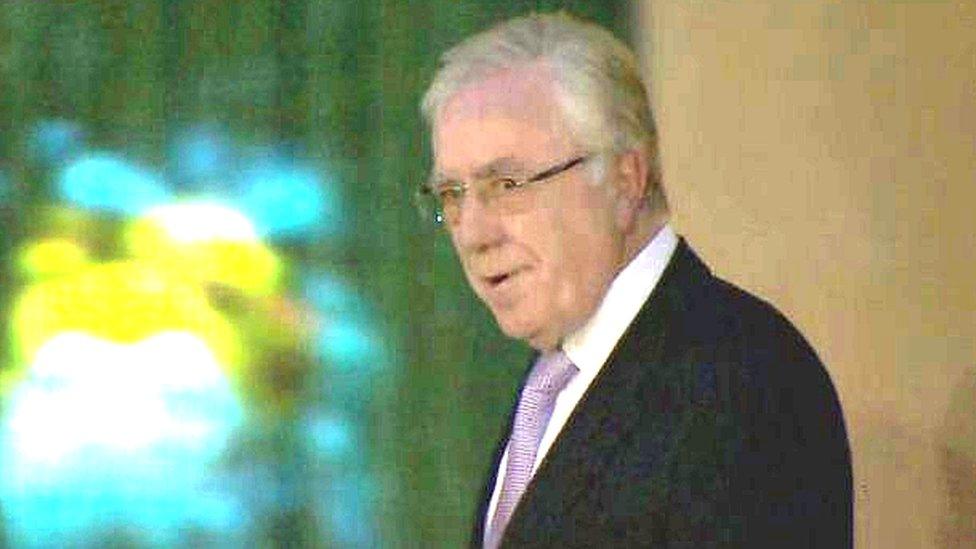Urology inquiry: Doctor's personal connections created 'chill factor'
- Published

Aidan O'Brien worked at the Southern Health Trust from 1992
Claims about Aidan O'Brien's personal connections created a "chill factor", a public inquiry has been told.
A health trust executive said this prevented concerns around his work being fully addressed by his employer.
The Urology Services Inquiry is examining the work of the former consultant urologist between January 2019 and June 2020.
It is also examining the Southern Health and Social Care Trust's handling of urology services before May 2020.
On Tuesday, the inquiry heard from Dr Maria O'Kane, chief executive of the Southern Trust, who said concerns about Mr O'Brien had been raised previously but there was a reluctance to challenge him.
Dr O'Kane said when she first joined the trust as medical director at the end of 2018 she was made aware of an action plan which had been created in 2017 to manage Mr O'Brien.
However, she told the inquiry it had been difficult to get a full understanding of what had previously happened from colleagues and it later emerged that breaches of the plan in 2018 were not properly escalated to senior managers.
'Put off challenging him'
"The history given about Mr O'Brien was that he had always been problematic. He was difficult to manage," Dr O'Kane said.
"He felt the system was always to blame. He didn't take any personal responsibility for anything going wrong at any point in time.
"The sense I got from people was they were hugely frustrated with having to manage him."
"I think what made the job of managing more difficult was a concern throughout the system about Mr O'Brien's connections.
"One of the first things I heard about him was that he had legal connections and then the other thing I heard was that he was a close friend of the chair of the trust.
"I think that put people off challenging him."
Laura McMahon, junior counsel to the inquiry, asked whether this had created a "chill factor" when it came to addressing concerns around his work, to which Dr O'Kane responded: "Yes."
Much of the focus of the inquiry on Tuesday was around an action plan created by the trust to address concerns with Mr O'Brien's work, which Ms McMahon suggested fell short in its purpose.
She suggested to Dr O'Kane it was "oversold by calling it an action plan" as it was asking Mr O'Brien to comply with the standards expected of him in his role.
Dr O'Kane said she learnt about the issues surrounding Mr O'Brien from reviewing notes relating to an internal investigation by the trust.
It was this review which prompted her to refer the consultant to the General Medical Council.
However, she conceded more should have been done to ensure he was complying with the action plan that resulted from this investigation.
Dr O'Kane also recalled a conversation in early 2019 with Roberta Brownlee, former chair of the trust, who she said suggested to her that Mr O'Brien "had been persecuted by my predecessor and he was essentially a good man and she hoped I wouldn't treat him in the same way".
An excerpt of a statement submitted to the inquiry by Ms Brownlee was read to Dr O'Kane.
In it, Ms Brownlee said she was not aware of the concerns around Mr O'Brien's work until it was raised with the board in 2020.
Dr O'Kane said practices had since changed and the trust was now made aware of any concerns around the performance of medical staff that were raised with her.

Urology consultant Aidan O'Brien worked at Craigavon Area Hospital before his retirement in July 2020
Urology deals with the urinary tract in both men and women, and men's genital organs.
Like other areas of Northern Ireland's healthcare system, it has extensive waiting lists.
When announcing the inquiry in 2020, the health minister at the time, Robin Swann, said issues around the clinical practice of Mr O'Brien were of the gravest concern.
The inquiry previously held hearings with patients and families, in private, to learn about their experiences with the Southern Trust.
Hundreds of families have been affected and more than a thousand patients' records were recalled as a result of a review into Mr O'Brien's work.
In his witness statement provided to the inquiry before it opened to the public, Mr O'Brien said he had faced a relentless burden in his job.
He claimed the biggest threat to the safety of urology patients was the inadequacies of the service provided by the trust.
He said he had tried to do the impossible when it was not possible and said any failings on his part should be viewed in this light.
The inquiry continues.
Related topics
- Published16 November 2022

- Published9 November 2022

- Published10 November 2022

- Published26 October 2020
